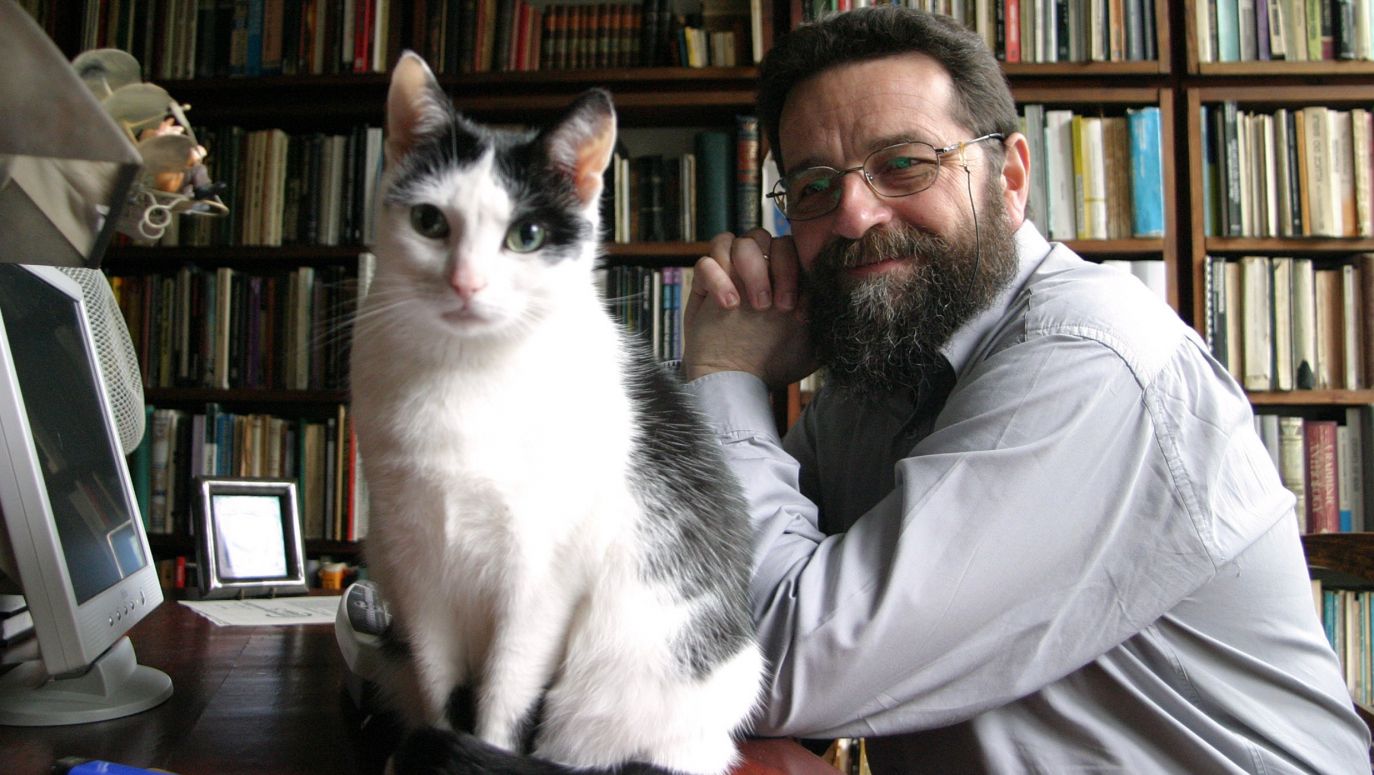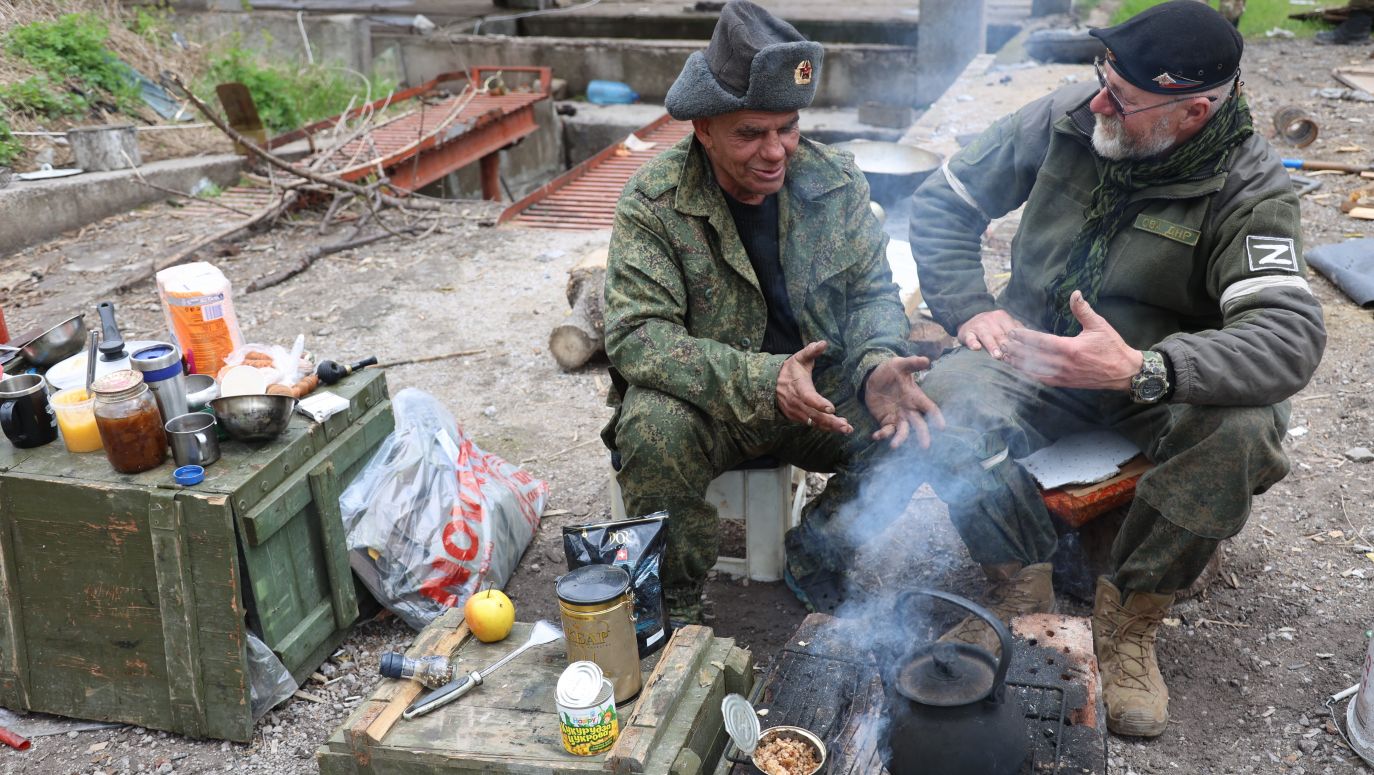There will be no second Yalta. The west won’t abandon Ukraine
04.05.2022
More than 30 years have passed since the end of the PRL [Polish People’s Republic] and the habit of polemicizing still hasn’t developed in Poland. And once there is a discussion, the participants either agree with one another or they hurl abuse at each other – says Irena Lasota, political scientist, journalist, co-founder and president of the Institute for Democracy in Eastern Europe (IDEE).
I certainly wouldn’t have written about the internal matters of Wyborcza if not for the text that appeared in its pages in the first half of April, titled: “Most soldiers in Putin’s army aren’t Russians. Does this explain the catastrophic morale of the invaders?” [written by Italian diplomat Stefano Pontecorvo]. But this is a lie, propagated through side channels by Russia. It’s racist and xenophobic to boot. Most (50% or more) of the soldiers of the Russian army are ethnic Russians, and 80% or more of the officers are also our Slavic brothers. This is why I also reported this article to the Center for Monitoring Racist Behavior.
To what effect?
Of course I didn’t get any reply. And this message is extremely harmful. It can be of service to Russian propaganda. Messages from Wyborcza about the putinization of Poland and comparing Jarosław Kaczyński to Vladimir Putin are also damaging. This was even being spread after the Russian invasion of Ukraine began (e.g. in an article by Eliza Michalik from 22 March titled “National agreement can’t be an agreement for the putinization of Poland by PiS [Law and Justice Party]”). It’s the whitewashing of Putin... If Putin is like Kaczyński, it means he is the democratically elected leader of a party, which some people like, and others don’t, and whom they don’t have to elect next time. And if there is “putinization” in Poland, are tens of thousands of people murdered, cities bombed and rapes committed here? Only a sick mind could come up with the idea that what is happening in Poland today could be the prelude to war – with who? Germany? Belarus? Lithuania? And [Adam] Michnik is [Aleksei] Navalny? Or maybe a surviving [Boris] Nemtsov?
Does the censorship of Konstanty Gebert’s text by Gazeta Wyborcza show that certain subjects can’t be discussed in Poland?
What can and can’t be, is constantly changing. While more than 30 years have passed since the end of the PRL [Polish People’s Republic] and the habit of polemicizing still hasn’t developed in Poland. Maybe sometimes I’ll notice someone polemicizing on Facebook. But, for example, when it comes to TV discussions or in the press, there’s nothing to see. I’d gladly discuss with someone whether it’s proper to compare Kaczyński to Putin, and about many other subjects. But polemicizing isn’t accepted in Poland. And once it comes to a discussion, the participants either agree with one another or they hurl abuse at each other
I came to the United States in 1970. After 2-3 years I knew English well, so I observed the real political debates there, including people like William F. Buckley, who invited Christopher Hitchens or Noam Chomsky. They were fascinating conversations. And you could learn a lot from them.
Are political debates in the United States still on a high level?
For about the last eight years it has been steadily worsening in this respect. You can still find really interesting discussions, but it’s difficult. There used to be a lot more of them. There isn’t enough diversity of opinions, especially in American television, which is very opinion-forming, but divided.
American friends are surprised that I know what’s happening on FOX News, CNN and MSNBC – I watch all of these channels. Meanwhile, many Americans only watch one news channel. They can’t stand different opinions.
Lets turn to eastern affairs. What scenario do you foresee for the future of the war in Ukraine?

But Pope Francis thinks not.
see more
A lot depends on the degree to which Ukraine can be armed. It’s certainly important for the Russians to achieve “victory” by May 9, to seize Mariupol by this time or organize a referendum in Lugansk and Donetsk, and in Kherson, as we see now. For now it looks like there will be no great celebration on May 9 in Russia, since none of the aims presented by Putin have been achieved. But how can this war be stopped? Ukraine has already suffered terrible losses, and they won’t give up their territory to Russia without a battle.
At the beginning of the Russian invasion, the West was signaling that Volodymyr Zelensky should surrender without a fight. Boris Johnson encouraged him to emigrate, reminding him that Great Britain has a history of emigre governments – with reference to Poland. Zelensky was encouraged to call on the people to leave Kiev and Kharkov, since they would be bombed. He didn’t do it. Let’s imagine what would have happened if Zelensky gave in to these insistences and emigrated to London, Warsaw or even Lviv, and several million Ukrainians left Kiev and Kharkov. After all, the Russians would go in there and efficiently carry out referenda in empty cities. Now they are depopulating entire districts with bombings, the threat of a nuclear plant explosion, murdering the civilian population, rapes, mass deportations into Russia and the conscription of Ukrainian citizens into the Russian army.
Deliberations continue over whether the aggression on Ukraine is Putin’s war or Russia’s war. How do you see it?
This is a Russian war. Russian society is certainly terrorized and stupefied. I really don’t like it when people say that Putin is a fascist. Putin is a Bolshevik, a Soviet person. To a large extent, Russian society is a Bolshevik and communist society. This is the mentality of wartime communism: “If we don’t like someone, we’ll destroy them. In 1917-1918 we dealt with the intelligentsia and clergy, in subsequent years, with the anarchists, and then with the rest.” This way of thinking survived in Russia. One can suspect that it survived in the entire Soviet Union. But when the USSR fell apart, it turned out that there wasn’t this type of thinking in its former republics.
I speak with Russians who live in Moscow and other cities. There’s a certain mental barrier there that can’t be overcome. Sometimes it also applies to deserving Russian democrats, dissidents. Recently, I posted a letter on Facebook from Victor Hugo in February 1863, so from the time of the January Uprising, addressed to the Russians. The letter begins with the words: “Russian soldiers, become people again!” It’s relevant today as well, you just have to change “Poles” to “Ukrainians” and “tsar” to “Putin.” One of the polemicists argued that after all, various nations have blood on their hands, that France subjugated Algeria, the Americans exterminated the Indians, etc. I replied that in America or France everyone apologizes to everyone for injustices, while Russians live in the conviction that they are the most wronged nation in the world and they never hurt anyone else. At most they defend themselves.
Can greater-Russian ambitions be restrained somehow?
Only from the outside. The Russian army already suffered a defeat in Ukraine. If only this would reach Russian society... At least what happened with the Moskva cruiser, or the fact that Russia does not want to take the bodies of many of their soldiers killed in Ukraine. This might penetrate the so-called Russian spirit, which either wins or suffers. And it would be very painful for the Russians.
Maybe dissidents, so the minority, might influence the majority, even a little. I have great respect for even small opposition movements in Russia. We know that at the beginning of the war, several thousand people protested against it in Moscow and in other cities. Recently, dolls began to appear in different places in St. Petersburg, displaying anti-war slogans; it was a campaign in the style of the “Orange Alternative” [an oppositional artists movement in the PRL, organizing events that mocked communism; its leader was Waldemar “Major” Frych]. This requires courage, though not that much.
I am counting on Vladivostok or Khabarovsk and on all the far-away Russian republics, where mothers don’t want to hand over their children to the army. And Russia has a recruiting problem. In Tuva, one of the poorest Russian republics, a mobilization of recruits was carried out. They were offered, relative to local living conditions, a huge sum of money, and shoes (there’s a shortage of shoes in Tuva). They expected several thousand recruits. In the meantime... thirty signed up. In other Russian republics there is also reluctance to get drawn into the army. In Dagestan, conscription is also ineffective. I assume that in Tatarstan, Russia is entirely unable to carry out conscription.
Why?
They try not to mix in the affairs of Tatarstan. My friend went there recently and said that once the road suddenly became straight and there were no empty vodka bottles lying by it, he knew he was in Tatarstan, where it’s clean and normal. There are conflicts ongoing there with Moscow over language and schooling issues. And they aren’t easy for the Russians. The same is happening in Ingushetia and in other republics, which don’t want to be a part of the Russian Federation at all and try to stand up to Moscow. The non-Russian minority in Russia do not want to be Russians, and what follows is that they don’t want to die for drunken, barbarous Russia.







